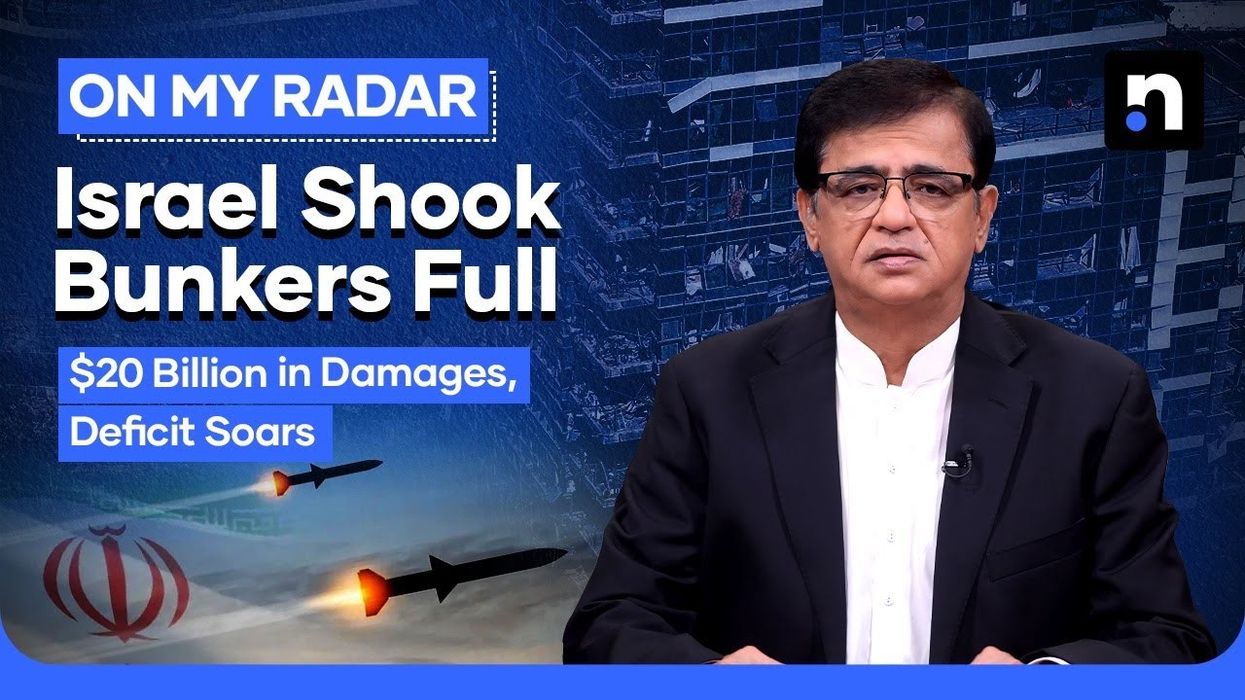News Desk
The News Desk provides timely and factual coverage of national and international events, with an emphasis on accuracy and clarity.
Iran’s missile attacks during the recent 12-day conflict inflicted the worst military and economic damage Israel has suffered in its 77-year history, Kamran Khan in the latest episode of his On My Radar show said.
He argued that in modern wars, victory is no longer defined by battlefield gains but by how much damage was caused — and which side managed to shatter the opponent’s narrative.
“Iran certainly suffered heavy human and material losses,” Khan said. “But the undeniable fact is that Israel also saw unprecedented destruction. Iran’s missile strikes pierced Israel’s most advanced air defense systems and exposed their weaknesses.”
$20 billion in estimated Israeli losses
Khan cited estimates that Israel’s defense and strategic sector may have lost $12 billion, with total losses potentially rising to $20 billion. Israeli Finance Minister Bezalel Smotrich acknowledged in a press conference that military expenses alone could reach $12 billion.
Iran’s missile barrage successfully struck key strategic Israeli sites including the military headquarters in Kirya, the Mossad intelligence agency’s center in Tel Aviv, and the globally known oil refinery in Haifa.
“Experts believe if the war had lasted another month, Israeli losses would have surged by another $12 billion,” Khan said. “If President Trump hadn’t intervened for a ceasefire, Israel could’ve been looking at $32 billion in damages.”
Khamenei declares victory
Following the ceasefire, Iranian Supreme Leader Ayatollah Ali Khamenei declared victory, saying the threat of Israel’s complete destruction forced the United States to intervene.
“The U.S. realized that without its involvement, Israel would be wiped out,” Khamenei said in his first video message after the ceasefire.
Heavy damage despite Israeli media blackout
Khan noted that while the Netanyahu government appears to have imposed a partial blackout on reporting war losses, Israeli social media and independent news outlets have exposed the scale of destruction. Over 41,000 claims have been filed by Israeli citizens, including damage to more than 33,000 properties and 8,000 vehicles.
Thousands of residential and commercial buildings across cities like Tel Aviv, Ramat Gan, Holon, Bat Yam, and Beersheba were hit.
“Even though casualties in Tel Aviv were fewer than in Tehran,” Khan said, “Israelis were seen hiding in bunkers in fear — a rare sight for the world to witness.”
According to Khan, 28 Israelis were killed and nearly 3,200 injured. At times, Iranian strikes came so fast that even early warning sirens failed to activate.
Defense failures exposed
Despite intercepting over 540 Iranian missiles, U.S. military think tanks say around 60 hit their targets, causing massive damage. Each Israeli interceptor missile cost about $4 million, and hundreds were deployed, with some destroyed in the process.
Reconstruction of damaged interceptor installations alone is estimated at $400 million. The Ben Gurion Airport was under constant attack, and Haifa’s Bazan refinery suffered fires and shutdowns due to direct hits.
Khan said Iranian missiles landed near the Kirya military headquarters, turning the Israeli military intelligence camp, Moshe Dayan, into rubble.
Economic toll and displacement
The Times of Israel reported military spending reached $5 billion during the war, while more than 15,000 civilians were displaced. Bloomberg added that Israel’s finance ministry expects to pay nearly $3 billion in immediate compensation.
The country’s fiscal deficit may hit 6% due to war-related spending, the report said. Shay Aaronovitch, head of Israel’s Tax Authority, described it as the biggest economic challenge in the country’s history.
“Israel’s economy halted for 12 days. Airspace was closed. Flights, logistics, agriculture, and manufacturing suffered significant losses,” Khan said.
Long-term strategic consequences
Health centers, educational institutes, and private offices were among the many facilities damaged by Iran’s strikes.
“Though Israel’s strong economy won’t collapse,” Khan said, “this is a serious strategic blow. The world has, for the first time, seen Israel’s infrastructure reduced to rubble.”
He added, “The myth of Israel’s invincible defense system has been broken forever."











Comments
See what people are discussing